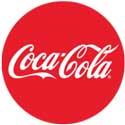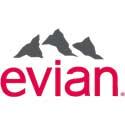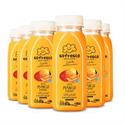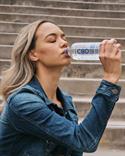Coca-Cola
Coke Europe Recalls Damaged Batch Of 1.5L Original Taste PET Bottles
.jpg&width=125&height=74) Coca-Cola European Partners (CCEP) has issued an urgent recall of several batches of Coca-Cola Original Taste 1.5-liter PET bottles because they may have damaged ring necks. The company said the bottle might have a sharp rim edge which could present a safety risk on opening. A CCEP spokesman said consumers who see damage to the bottle neck ring should take care in opening the bottle by keeping the hand on the cap and above the neck.[Image Credit: © The Coca-Cola Company]
Coca-Cola European Partners (CCEP) has issued an urgent recall of several batches of Coca-Cola Original Taste 1.5-liter PET bottles because they may have damaged ring necks. The company said the bottle might have a sharp rim edge which could present a safety risk on opening. A CCEP spokesman said consumers who see damage to the bottle neck ring should take care in opening the bottle by keeping the hand on the cap and above the neck.[Image Credit: © The Coca-Cola Company]
COVID-19 Bashes Coca-Cola Global Sales Volumes
 Coca-Cola reported flat first quarter revenues as global sales volumes slid 25 percent this month due to COVID-19 disruption. Q1 revenues were $8.6 billion, one percent less than the same period last year. Operating income declined by two percent to $2.38 billion. Unit case volumes of sparkling soft drinks declined two percent in the quarter, while juice, dairy and plant-based beverages were down six percent and tea and coffee volume declined six percent. The company said that volume at the end of February was growing by three percent – excluding China – and was on track to achieve its full-year 2020 targets. But disruption due to COVID-19 in global markets from March significantly impacted sales, as social distancing measures and quarantine orders were put in place by governments around the world. The company expects continued reduction in away-from-home activity will have a “significant impact on second-quarter results.”[Image Credit: © THE COCA-COLA COMPANY]
Coca-Cola reported flat first quarter revenues as global sales volumes slid 25 percent this month due to COVID-19 disruption. Q1 revenues were $8.6 billion, one percent less than the same period last year. Operating income declined by two percent to $2.38 billion. Unit case volumes of sparkling soft drinks declined two percent in the quarter, while juice, dairy and plant-based beverages were down six percent and tea and coffee volume declined six percent. The company said that volume at the end of February was growing by three percent – excluding China – and was on track to achieve its full-year 2020 targets. But disruption due to COVID-19 in global markets from March significantly impacted sales, as social distancing measures and quarantine orders were put in place by governments around the world. The company expects continued reduction in away-from-home activity will have a “significant impact on second-quarter results.”[Image Credit: © THE COCA-COLA COMPANY]
Danone
Evian Packaging, Production, Distribution Certified As Carbon Neutral
 After announcing in December that four of its water brands had committed to achieving carbon neutrality in the coming years, the company issued a statement this month that Evian’s bottling operations have been verified as carbon neutral under the Carbon Trust’s internationally-recognized PAS 2060 standard. Evian said the certification was granted after changes in packaging, production, and distribution. It reduced its carbon footprint by lightweighting plastic bottles and increasing recycled PET (rPET) in packaging. The brand reduced the carbon footprint of production operations by using renewable energy at its carbon-neutral production site in France. Evian plans to make all of plastic bottles from 100 percent recycled plastic by 2025. Lastly, approximately 50 percent of Evian’s volumes are now shipped directly by train from the plant, resulting in a carbon footprint seven times lower than delivery by trucks.[Image Credit: © Danone S.A.]
After announcing in December that four of its water brands had committed to achieving carbon neutrality in the coming years, the company issued a statement this month that Evian’s bottling operations have been verified as carbon neutral under the Carbon Trust’s internationally-recognized PAS 2060 standard. Evian said the certification was granted after changes in packaging, production, and distribution. It reduced its carbon footprint by lightweighting plastic bottles and increasing recycled PET (rPET) in packaging. The brand reduced the carbon footprint of production operations by using renewable energy at its carbon-neutral production site in France. Evian plans to make all of plastic bottles from 100 percent recycled plastic by 2025. Lastly, approximately 50 percent of Evian’s volumes are now shipped directly by train from the plant, resulting in a carbon footprint seven times lower than delivery by trucks.[Image Credit: © Danone S.A.]
Danone Surprises Market With Healthy First Quarter Financials
 Danone posted first quarter like-for-like net sales growth ahead of expectations at 3.7 percent to $6.8 billion, as consumers stockpile and increase their at-home consumption. The company withdrew its full-year financial guidance for 2020 owing to the lack of visibility caused by the coronavirus pandemic. The Waters business reported a drop in net sales of 6.8 percent on a like-for-like basic due to closures in food service. About 40 percent of the division’s sales are normally consumed away from home. Its Essential Dairy & Plant-Based (EDP) unit recorded strong performance by its plant-based brands, Alpro in Europe and Silk in North America, and its top essential dairy brands such as Actimel, Danone and Danette in Europe, and Horizon and Two Good in the U.S.[Image Credit: © Danone S.A.]
Danone posted first quarter like-for-like net sales growth ahead of expectations at 3.7 percent to $6.8 billion, as consumers stockpile and increase their at-home consumption. The company withdrew its full-year financial guidance for 2020 owing to the lack of visibility caused by the coronavirus pandemic. The Waters business reported a drop in net sales of 6.8 percent on a like-for-like basic due to closures in food service. About 40 percent of the division’s sales are normally consumed away from home. Its Essential Dairy & Plant-Based (EDP) unit recorded strong performance by its plant-based brands, Alpro in Europe and Silk in North America, and its top essential dairy brands such as Actimel, Danone and Danette in Europe, and Horizon and Two Good in the U.S.[Image Credit: © Danone S.A.]
Other Companies
Singapore Entrepreneur Uses HPP Technology To Extend Shelf Life Of His Chicken Drink
 Avid bodybuilder Brian Chia – who always wanted to start a fitness business – has teamed with a Singapore company that specializes in high-pressure processing (HPP) of foods and beverages to make his chicken breast-based protein smoothies. Chia’s company, BE Protein Smoothies, uses Hiperbaric to transform organic protein from lean chicken breast and other natural ingredients – antioxidants, fresh fruits, yogurt, and honey – into healthful and convenient protein-based smoothies for fitness fans. The HPP technology was chosen because it enables food safety and extends shelf life, while allowing food to maintain freshness without preservatives. Using HPP, Chia’s drinks increased shelf life from one week to more than 30 days. BE Protein Smoothies are only available in Singapore today, but Chia hopes to expand operations to the U.S. and other countries in the near future.[Image Credit: © BE Protein Smoothies]
Avid bodybuilder Brian Chia – who always wanted to start a fitness business – has teamed with a Singapore company that specializes in high-pressure processing (HPP) of foods and beverages to make his chicken breast-based protein smoothies. Chia’s company, BE Protein Smoothies, uses Hiperbaric to transform organic protein from lean chicken breast and other natural ingredients – antioxidants, fresh fruits, yogurt, and honey – into healthful and convenient protein-based smoothies for fitness fans. The HPP technology was chosen because it enables food safety and extends shelf life, while allowing food to maintain freshness without preservatives. Using HPP, Chia’s drinks increased shelf life from one week to more than 30 days. BE Protein Smoothies are only available in Singapore today, but Chia hopes to expand operations to the U.S. and other countries in the near future.[Image Credit: © BE Protein Smoothies]
Molson Coors, HEXO Create U.S.-based JV To Explore CBD Beverage Opportunities
Red Bull Launches Zero-Sugar Variant In U.K.
Coffee Prices Lurch Upward After Coronavirus-Induced Slides
 After several months of coffee price volatility spurred by the coronavirus pandemic, prices have rallied in the past month. Prices tanked in early February, hitting a 2020 low of around 97 cents a pound as unstable stock markets reflected widespread panic about the coronavirus. Benchmark New York arabica coffee futures for May delivery gained 15 percent over the last month, trading at around $1.20 per pound on April 16. Global pandemic lockdowns fueled panic buying by those stuck at home, and analysts said consumer demand for coffee has not faltered despite the pandemic. Coffee roasters selling predominantly for out-of-home consumption said sliding prices had severely hurt their businesses. But coffee suppliers serving supermarkets were seeing a surge in demand, as widespread lockdown measures drove panic buying. Analysts are unsure what will happen to coffee prices once the crisis had passed and lockdowns are lifted.[Image Credit: © Yuri_B from Pixabay]
After several months of coffee price volatility spurred by the coronavirus pandemic, prices have rallied in the past month. Prices tanked in early February, hitting a 2020 low of around 97 cents a pound as unstable stock markets reflected widespread panic about the coronavirus. Benchmark New York arabica coffee futures for May delivery gained 15 percent over the last month, trading at around $1.20 per pound on April 16. Global pandemic lockdowns fueled panic buying by those stuck at home, and analysts said consumer demand for coffee has not faltered despite the pandemic. Coffee roasters selling predominantly for out-of-home consumption said sliding prices had severely hurt their businesses. But coffee suppliers serving supermarkets were seeing a surge in demand, as widespread lockdown measures drove panic buying. Analysts are unsure what will happen to coffee prices once the crisis had passed and lockdowns are lifted.[Image Credit: © Yuri_B from Pixabay]
CO2 Shortage Threatens Soft Drinks, Sparkling Water, Beer
 Supplies of carbon dioxide (CO2), a byproduct of ethanol fuel production, are down 30 percent as ethanol plants were forced to close in droves due to the coronavirus pandemic. Of the 45 U.S. ethanol plants that sell carbon dioxide, 34 are closed, while other CO2 sources from ammonia plants and oil refineries are also declining due to the crisis. CO2 is a key ingredient in carbonation of soft drinks and beer, and beverage makers are scrambling to find supplies. A serious crisis will hit in May without government help, says Compressed Gas Association CEO Rich Gottwald, who expects that within the next four weeks the production shortfall will reach more than 70 percent. The shortage will threaten some of the hottest parts of the $28 billion carbonated drinks market, including sparkling water and hard seltzers, which have surged in recent years amid a popularity boom. [Image Credit: © Alexander Lesnitsky from Pixabay]
Supplies of carbon dioxide (CO2), a byproduct of ethanol fuel production, are down 30 percent as ethanol plants were forced to close in droves due to the coronavirus pandemic. Of the 45 U.S. ethanol plants that sell carbon dioxide, 34 are closed, while other CO2 sources from ammonia plants and oil refineries are also declining due to the crisis. CO2 is a key ingredient in carbonation of soft drinks and beer, and beverage makers are scrambling to find supplies. A serious crisis will hit in May without government help, says Compressed Gas Association CEO Rich Gottwald, who expects that within the next four weeks the production shortfall will reach more than 70 percent. The shortage will threaten some of the hottest parts of the $28 billion carbonated drinks market, including sparkling water and hard seltzers, which have surged in recent years amid a popularity boom. [Image Credit: © Alexander Lesnitsky from Pixabay]
Portuguese Juice Company SoFresco Says It’s Happy It Expanded To U.S.
 Portuguese cold-pressed juice brand SoFresco says its decision a year ago to open a U.S. production facility to grow its North American presence has worked out well, despite the global coronavirus pandemic. The 78-year old family-owned Group GL SA (Lisbon), operating as Good Crop Inc. in the U.S., markets high pressure processed (HPP) cold pressed juices in single-serving PET bottles, juice shots, and apple cider vinegar shots in 3.7 oz. bottles. Products made at the company’s 17,000-sq.-ft. Malvern, Pa., facility are sold at more than 2,000 retailers in the U.S., as well as at stores in Canada, Mexico, Costa Rica, and Panama. And even with the large factory, SoFresco is developing its own branded products rather than co-packing for others. [Image Credit: © Sofresco]
Portuguese cold-pressed juice brand SoFresco says its decision a year ago to open a U.S. production facility to grow its North American presence has worked out well, despite the global coronavirus pandemic. The 78-year old family-owned Group GL SA (Lisbon), operating as Good Crop Inc. in the U.S., markets high pressure processed (HPP) cold pressed juices in single-serving PET bottles, juice shots, and apple cider vinegar shots in 3.7 oz. bottles. Products made at the company’s 17,000-sq.-ft. Malvern, Pa., facility are sold at more than 2,000 retailers in the U.S., as well as at stores in Canada, Mexico, Costa Rica, and Panama. And even with the large factory, SoFresco is developing its own branded products rather than co-packing for others. [Image Credit: © Sofresco]
CBD Living Debuts Sparkling Water Containing 25 Mg Of CBD

Corona, Calif.-based CBD Living, a marketer of cannabidiol (CBD)-based capsules, topicals, edibles, etc., has launched a sparkling water containing CBD derived from organic U.S.-grown hemp. Vegan, gluten-free CBD Living Sparkling Water contains 25 mg of nano-CBD per five-calorie 12-oz can, is certified kosher, and contains no THC and no sugar. The beverage comes in orange grapefruit, peach honey, strawberry lavender and apple ginger flavors. The beverage is available nationwide in more than 5,000 stores in single cans, cases of 12 and 24, and a four-can variety sample pack.[Image Credit: © CBD Living]
Neuro Brands Launches Digestive Health Drink With Kombucha, Probiotics
Plain Water Sales Dropped In U.K. In 2019, But Were Still Higher Than In 2017
.jpg&width=125&height=83) Zenith Global’s latest report on plain water in the U.K. says year-on-year sales dropped in 2019, after they got a shot in the arm during 2018’s summer heat wave. Volumes excluding water coolers and dispensers dipped 3.1 percent to 3.5 billion liters in 2019, while value fell 2.5 percent to $3.3 billion. Despite the sag, plain water sales in 2019 still surpassed 2017 sales, as regular hydration has become an important consumer priority. The average U.K. consumer buys one liter of plain water a week; 45 percent of consumers in the U.K. purchase plain water. Still water accounts for 85 percent of volume and sparkling water 15 percent, while retailer own-brand labels have grown to a 43 percent volume share.[Image Credit: © Darko Djurin from Pixabay]
Zenith Global’s latest report on plain water in the U.K. says year-on-year sales dropped in 2019, after they got a shot in the arm during 2018’s summer heat wave. Volumes excluding water coolers and dispensers dipped 3.1 percent to 3.5 billion liters in 2019, while value fell 2.5 percent to $3.3 billion. Despite the sag, plain water sales in 2019 still surpassed 2017 sales, as regular hydration has become an important consumer priority. The average U.K. consumer buys one liter of plain water a week; 45 percent of consumers in the U.K. purchase plain water. Still water accounts for 85 percent of volume and sparkling water 15 percent, while retailer own-brand labels have grown to a 43 percent volume share.[Image Credit: © Darko Djurin from Pixabay]
Copyright 2026 Business360, Inc.

